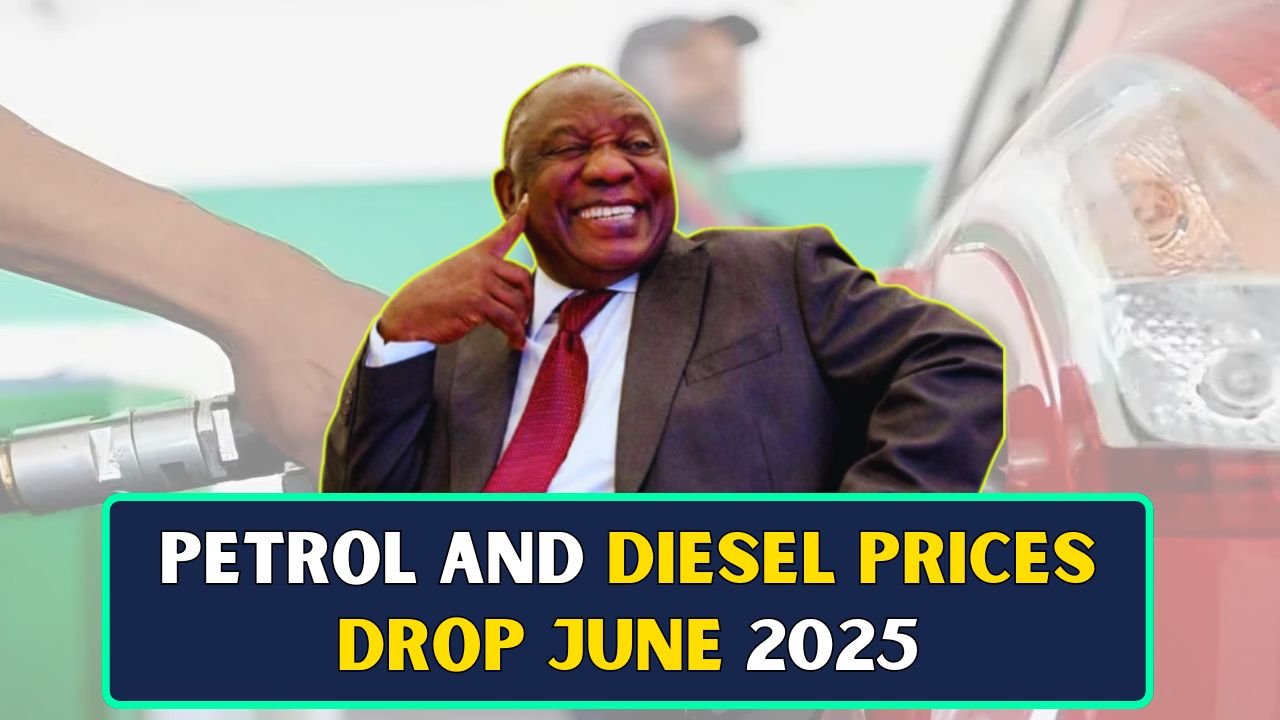South African motorists are breathing a sigh of relief this June as the Department of Mineral Resources and Energy has officially confirmed a significant drop in both petrol and diesel prices.
This fuel price cut, which came into effect at midnight on Wednesday, June 5, 2025, offers much-needed financial relief for millions of commuters, transport operators, and households battling the ongoing cost-of-living crisis.
The decrease follows several months of high fuel costs, driven largely by volatile global oil prices and the fluctuating rand-dollar exchange rate. With fuel being a major contributor to inflation in South Africa, this reduction is expected to bring temporary reprieve not only at the pumps but also across the supply chain.
What Triggered the Price Drop?
Several global and domestic factors contributed to this June’s fuel price decrease. Internationally, the price of crude oil has softened due to increased output from oil-producing nations and lower demand forecasts from key economies such as China and the United States. Domestically, the rand has shown slight strength against the US dollar during May, further easing import costs.
Additionally, lower freight rates and refined product prices contributed to the overall reduction. The Central Energy Fund’s calculations reflect these shifts in their fuel price adjustments for the month of June.
How Much Have Petrol and Diesel Prices Dropped?
According to the official announcement, both grades of petrol 95 octane and 93 octane saw reductions of more than R1 per litre, while diesel prices dropped even further. The changes vary slightly depending on inland or coastal regions, but the savings are meaningful across the board.
Table: New Fuel Prices for June 2025
| Fuel Type | Previous Price (May 2025) | New Price (June 2025) | Price Change |
|---|---|---|---|
| Petrol 95 (Inland) | R25.49 | R24.35 | -R1.14 |
| Petrol 93 (Inland) | R25.09 | R24.01 | -R1.08 |
| Diesel 0.05% (Inland) | R22.79 | R21.33 | -R1.46 |
| Diesel 0.005% (Inland) | R22.94 | R21.41 | -R1.53 |
| Illuminating Paraffin | R17.55 | R16.21 | -R1.34 |
These new prices are effective nationwide and reflect changes that will be felt immediately by motorists, transporters, and fuel-dependent industries.
What This Means for Consumers
The most immediate benefit of the fuel price drop is lower transport costs. Motorists will spend less at the pump, particularly those who rely on private vehicles for commuting or long-distance travel. Public transport providers such as taxis and buses may also experience operational savings, though it may take time before these translate into lower passenger fares.
The reduction in diesel prices is especially impactful for the agriculture and logistics sectors, which rely heavily on diesel-powered vehicles and machinery. These industries are expected to pass on some of the savings to consumers through lower food and goods prices in the coming weeks if the trend continues.
How Long Will the Relief Last?
While the June drop is welcome news, experts caution that fuel prices remain vulnerable to global market dynamics. OPEC+ production decisions, geopolitical tensions, and future exchange rate movements could affect fuel prices in the coming months. The South African government does not control fuel pricing directly, as the adjustments are determined monthly based on international benchmarks and local currency performance.
Motorists are encouraged to take advantage of the current drop by planning travel efficiently and topping up at strategic times. It is unclear whether prices will remain low into July, as forecasts remain mixed.
Looking Ahead
The government has reiterated its commitment to reviewing the structure of the fuel pricing system in the long term. Talks of deregulation, reductions in levies, and increased domestic refining capacity continue to surface. However, any permanent solution to stabilizing fuel costs is still some distance away.
For now, South Africans can enjoy the temporary breathing room offered by this June relief, which arrives just in time for the winter season and rising household heating costs.

